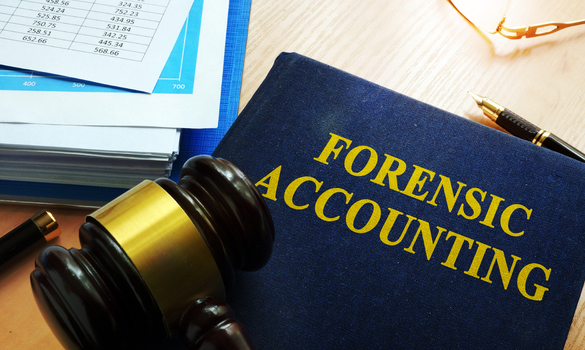
A forensic accountant is someone who analyzes tax forms and business records to identify irregularities that can impact criminal and civil court cases. Essentially, these CPAs use pivot table numbers to sniff out fraud, embezzlement and corruption, among other financial crimes. There are plenty of corruption situations that exceed ones caused by the worst passwords. Forensic accountants offer professionals assistance when they struggle in such situations. If this type of job interests you, you are in luck. Forensic accounting is one of the fastest growing fields in law enforcement today. To learn more about how you can take the next step in becoming a forensic accountant, keep reading below.
Education
The first step to any lucrative position is education. To become a forensic accountant, it is recommended that you receive your Bachelor’s degree in accounting. This will provide you with important knowledge for your future career while refinancing student loans, as well as any necessary credit hours to sit for future certification exams. Additionally, you may want to take a few courses in criminal justice to familiarize yourself with the types of cases forensic accountants work on.
Examination
You also need to take the certified public accountant (CPA) examination to become a forensic accountant. The exam includes four sections that tests prospective forensic accountants’ skills in multiple areas. These areas include, auditing, business environment concepts and regulations. While you likely will not get tested on business continuity management, you do need to acquire some business-oriented knowledge to pass. In order to continue on in your journey of becoming a forensic accountant, you need to pass the CPA exam.
Licensing
Once you have received your education and pass the CPA exam, you will need to obtain your licensure. All accountants must sit for the Uniform Certified Public Accountant Examination and then receive their licenses. Whether you want to get hired by HR professionals conducting finance recruiting or continue on to become a forensic accountant, you need your license. You cannot conduct any forensic accounting work until you receive your license.
Certification
To provide yourself with even more credentials, it is suggested that you also get certified as a CFE. CFE stands for Certified Fraud Examiner. This denotes proven experience in fraud detection and deterrence and nothing else, including trademark infringement. Because forensic accountants deal so closely with fraud and other similar cases, this is an excellent addition to your resume. To prove that you have the necessary set of skills to become a forensic accountant, go the extra mile and get certified.
Experience
The next step to a forensic accounting position is experience. Many forensic accounting jobs require two years of previous accounting experience. Try getting a job with a corporation, business, or public service organization that will provide you with experience in the types of tax documents you hope to work with in the future. Even working as a public accountant would be a great help in preparing you for a forensic accounting career.
Improvement
Finally, the last thing that will help you along your journey toward becoming a forensic accountant is improvement. Even if you can manage to find an entry-level position in job costing analysis, there is always room to grow. Earning your Master’s degree in accounting or criminal justice could be the key to moving up more quickly in your job. If you want to rise to the top as a forensic accountant, remember to always strive for improvement.
What Do Forensics Accountants Do?
It would be wise of you to know what you are getting yourself into before pursuing a career in the field. Forensics accounting is a career that allows accountants to use their financial expertise to investigate financial crimes, like a business not contributing FICA taxes. Forensics accountants are responsible for conducting forensic auditing and identifying discrepancies in private or public funds, as well as government organizations. In addition, forensic accounting professionals are responsible for preparing their expert witness testimony for both criminal and civil cases they are brought on board for. They must also review statements from all involved firms. These are the day-to-to responsibilities for forensics accountants. Make sure you would enjoy these tasks before you pursue your forensics accounting career.
There are many different positions available in the accounting industry. Forensic accounting is, no doubt, one of the most exciting positions you can take on. In order to become a forensic accountant, you will need to follow the steps above. Education and licensing are the basic necessities when it comes to this position. To improve your chances of landing your dream job, you will also need to pursue certification as a fraud examiner and acquire experience in a similar accounting environment. As long as you follow these tips, you can become a forensic accountant. Just be sure to leave the pardons to a professional.
 Business First Family Business, Accounting, Finance, Investing, Marketing And Management
Business First Family Business, Accounting, Finance, Investing, Marketing And Management